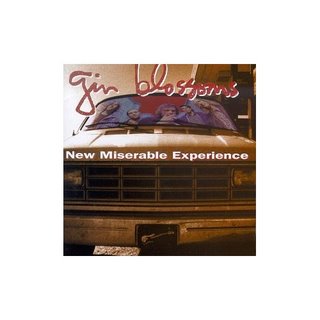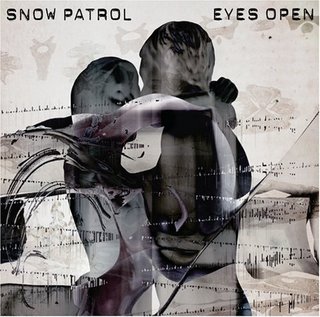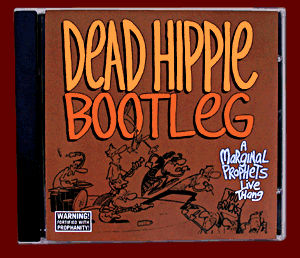Dixie Chicks : Honest-to-God Rebels on the Radio
Though they copped the attitude for years, Dixie Chicks have at last become true rebels. Their new album, “Taking The Long Way,” is one of the boldest, most defiant artistic statements a popular recording act has made in… well… in as long as I can remember. As many have noted, it would have been easy for them to release an apologetic record or one that pretended like the last few years haven’t happened. But they didn’t. Instead, they threw up six middle fingers at everyone who jeered them and then got the best revenge of all by making an amazing record.
But let me take a breath. Background first. While they were selling almost ten million copies apiece of their albums “Wide Open Spaces” and “Fly,” the Dixie Chicks were like the most outrageous girls in church. They made songs about getting laid and killing abusive husbands, but their sassy attitudes and multiple tattoos always seemed like a winking prank. Something to rustle grandma’s skirts as they appealed to masses of country music fans with their very traditional sound.
Now that doesn’t mean their music was safe or boring. To the contrary, the Chicks distinguished themselves by recording country tunes that were more steeped in musicianship than those of other superstar acts like Shania Twain and Tim McGraw, who were happily pulling their cowboy-pop off the Nashville assembly line. Ironically enough, despite their so-called rebellion, it was the Chicks’ musical traditionalism that made them stand out. They played their own fiddles. They chose excellent covers by unsung songwriters. They were making honest-to-god country music in an industry that was, at best, making nods to Patsy and Hank as it sashayed over to MTV.
And so the Dixie Chicks were easy to love. They respected their elders and their roots, but they were just hip enough to make the entire scene seem a little bit cooler. Again, though, this is not a slam. I love the albums mentioned above, and I’ve always liked the Chicks for asserting themselves as smart, witty women who feel no need to tart up their enormous talent or bend it to the latest musical trend. It just never really seemed like they were all that dangerous.
Then, of course, came what the group now calls “The Incident,” in which lead singer Natalie Maines publicly criticized President Bush at a 2003 concert for sending us to war. In response, most everyone in country lost their minds. Radio stations banned them and former fans burned their CDs. Toby Keith even became a superstar by deriding the Chicks and asserting that his brand of patriotism was the only way to go. 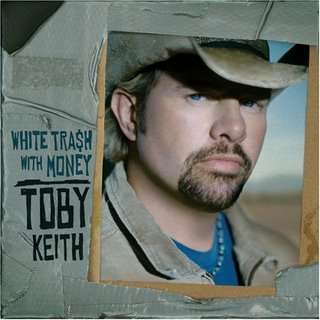 He released a song called “The Angry American” about “putting a boot in [the] ass” of anyone who disagreed with our nation’s leaders, and an entire redneck culture sprang up to join him on the radio.
He released a song called “The Angry American” about “putting a boot in [the] ass” of anyone who disagreed with our nation’s leaders, and an entire redneck culture sprang up to join him on the radio.
And so the Dixie Chicks sank into exile, names blackened for exercising free speech. Then the rest of the country started agreeing with them. Suddenly, hating the war was the thing to do. Even Faith Hill and Tim McGraw criticized President Bush, albeit for failing to support Katrina victims. It would have been easy for the tainted ladies to quietly say “I told you so,” release another album of lovely and respectable Dixie tunes, and sail right back to the top of the charts.
But instead, the group stayed pissed. Song after song on “Taking the Long Way” directly addresses the controversy, including the pointed single “Not Ready to Make Nice.” For the first time, the women co-write all the material themselves, and the album is more serious and focused than any they’ve released before. They are artists who, for the first time, have really got something to talk about.
And while everyone has noticed that the album sounds great—which it does—these women deserve a little more credit for rebelling so completely against the world they inhabited. It’s remarkable for country artists to disagree with a Republican president and then decry the ensuing backlash. Fewer people notice when Eddie Vedder impales a mask of Dubya on a mike stand—as he did just weeks after the Chicks uproar—because everyone expects alternative rockers to rage against the machine.  Their fans are likely to share their left-leaning politics, so their acts, while likely genuine, don’t carry the same potential for outrage.
Their fans are likely to share their left-leaning politics, so their acts, while likely genuine, don’t carry the same potential for outrage.
Country music, however, is the most conservative of the widely popular genres. The industry markets itself as a bastion for Christian conservatives, and many of its hits are about God (listen to Brad Paisley’s “When I Get Where I’m Going” or Martina McBride’s “God’s Will”). Another popular topic is the rejection of “highbrow” culture or liberal ideas (see “Politically Uncorrect” by Gretchen Wilson or “Honkytonk Badonkadonk” by Trace Adkins). In the same way that Pearl Jam is music for radical liberals, country is the soundtrack to your red state tour.
It’s no surprise, then, that so many country fans and station programmers turned on the “outlandishly” unsupportive words of Natalie Maines. That does not, however, make it right. Put simply, the Chicks got stabbed in the back. The very people who had supported these women when they gave lip service to rebellion made them into pariahs when they dared say something unpopular. Plenty of people showed themselves to be hypocritical defenders of American “freedom” when they excommunicated three women who spoke their minds.
And now many of those same people are chastising the Chicks for saying something about what happened. This article from UPI quotes a program director who calls them “self-indulgent and selfish” for lambasting the people who sent them death threats and otherwise disavowed them.
Meanwhile, though it debuted at number one on the Billboard album chart, sales for "Taking the Long Way" are much lower than for the opening weeks of previous releases.
Surely, the Dixie Chicks knew this continued backlash could happen, and good for them for refusing to shut up and be good in order to avoid it. It’s reprehensible that so many people are telling these women that they are not allowed to disagree with what radio listeners might think. Along with death threats, they also report being harassed in public and followed by the FBI. How can it possibly be “self-indulgent and selfish” to say that this makes them mad? To the contrary, I’d say it makes the Dixie Chicks much, much braver than their attackers. They are being bullied into suppressing their opinions, but they are refusing to let the bullies win. Maybe these radio programmers and country fans don’t realize how much they sound like thought police, but it’s a victory for the American ideal of independent thought that the Dixie Chicks decided to call them on it.
And who really cares if they sell three million records instead of ten? For once, major label artists have shown integrity (not to mention their record company). Call me naïve, but I think this is more than a marketing ploy. I think that this time, an honest statement made it into record stores. The excellence of the music suggests I’m right, and so does that fact that “Taking the Long Way” is being released into a country market that will never accept it and a pop/rock market that has no reason to embrace it.
I embrace the Chicks, though. I embrace their artistry and their message. I feel comforted that the Dixie Chicks have been so truly rebellious in a society that tries to say it’s rebellious to drink Mountain Dew.
I feel comforted that the Dixie Chicks have been so truly rebellious in a society that tries to say it’s rebellious to drink Mountain Dew.
And though my politics are probably clear, I’m not saying that I necessarily embrace the Chicks because they took a less conservative stance. What’s more impressive is the fact that they spoke their minds when they knew many of their fans wouldn’t appreciate it. If Pearl Jam stopped a concert to discuss how strongly they supported the war in Iraq, no doubt their fans would boo and CD sales would slump. And if Pearl Jam refused to stop speaking what they believed to be true and even made music about it, well there would be integrity in that as well. Standing up against the power of popular opinion is veryhard, particularly in the arts, and it’s worth a cheer when someone does it.
Labels: Country/Folk, Rock
